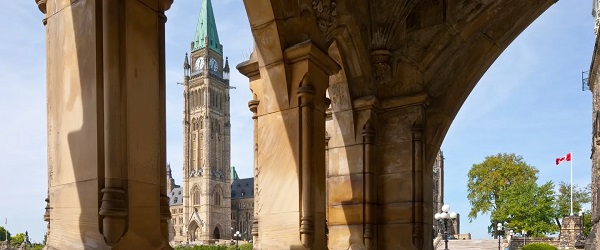Housing
Trudeau admits immigration too much for Canada to ‘absorb’ but keeps target at record high
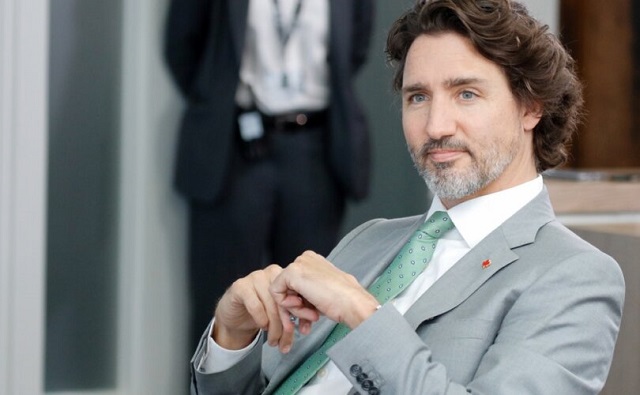
From LifeSiteNews
Despite his admission that the influx of people has outpaced Canada’s ability to sustain itself, Trudeau said he is committed to continuing his government’s plan to bring in 500,000 permanent immigrants each year.
Prime Minister Justin Trudeau has admitted that his mass immigration policies have driven Canadians’ wages down and attributed to the housing crisis, but he still insists on bringing in hundreds of thousands of people each year.
During an April 2 media conference in Dartmouth, Nova Scotia, Trudeau acknowledged that his immigration policies have negatively affected Canadians after a journalist questioned him on how his policies have contributed to record high unaffordability in the nation.
“Over the past few years, we’ve seen a massive spike in temporary immigration, whether it’s temporary foreign workers or whether it’s international students in particular that have grown at a rate far beyond what Canada has been able to absorb,” he admitted.
PM Trudeau says immigration to Canada has "grown at a rate far beyond what Canada has been able to absorb," adding that "temporary immigration has caused so much pressure in our communities," in relation to housing #cdnpoli pic.twitter.com/3ASFufZKID
— Mackenzie Gray (@Gray_Mackenzie) April 2, 2024
“To give an example, in 2017, two per cent of Canada’s population was made up of temporary immigrants,” Trudeau continued. “Now we’re at 7.5 per cent of our population comprised of temporary immigrants. That’s something we need to get back under control.”
Amid heckling from protestors, Trudeau acknowledged that the immigration crisis must be solved. However, he attributed the negative effects only to the spike in “temporary” immigrants, who he claims are “putting pressure on our communities.”
“That’s something that we need to get back under control, both for the benefit of those people because international students we’re seeing increasingly vulnerable to mental health challenges, to not being able to thrive and get the education they want,” he stated.
“But also, increasingly more and more businesses [are] relying on temporary foreign workers in a way that is driving down wages in some sectors,” Trudeau continued.
Despite the admission, Trudeau announced that he still plans to bring in permanent immigrants at a record pace, despite Canadians struggling to afford homes and even food.
“Every year, we bring in about 450,000, now close to 500,000, permanent residents a year, and that is part of the necessary growth of Canada,” he insisted. “It benefits our citizens, our communities, it benefits our economy.”
While Trudeau remains insistent that mass immigration “benefits” the economy, recent figures show that the nation’s GDP per capita growth rate is dismal compared to other countries with lower relative immigration levels like the United States.
The Bank of Canada has even gone as far as saying that the weakening productivity of the nation’s economy has become “an emergency.”
In March, Canada reached a population of 41 million, just 9 months after hitting the 40 million mark. Such growth is unprecedented in recent history and among the highest immigration rates in the world.
Trudeau’s acknowledgment comes as a recent report found that Canada is one of the unhappiest places in the West for people in their 20s as young Canadians are experiencing the effects of Trudeau’s government, which has been criticized for its overspending, onerous climate regulations, lax immigration policies, and “woke” politics.
Additionally, a March poll revealed that seven out of 10 Canadians believe the country is broken and that the Trudeau government does not focus on issues that matter.
Furthermore, many have pointed out that considering rising home prices, many Canadians under 30 are at risk of never being able to purchase a home.
Business
Red tape is killing Canadian housing affordability
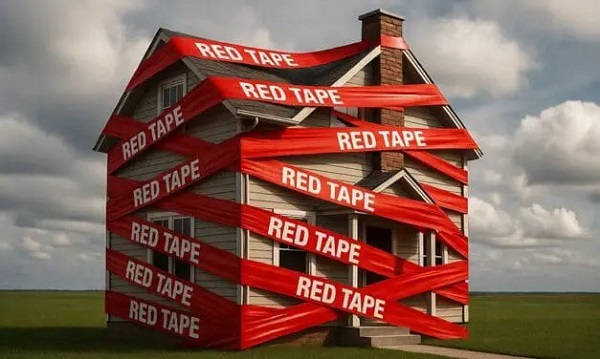
This article supplied by Troy Media.
 By Conrad Eder
By Conrad Eder
Bureaucracy and bad policy, not demand, are driving up housing prices
Imagine putting down a hefty deposit on an $800,000 pre-construction condo only to find out at closing that your unit is now worth $1 million.
That’s a $200,000 shortfall. Since banks lend based on appraised value, you’re left with two choices: cough up the extra cash or walk away and kiss your deposit goodbye.
Canada’s housing affordability crisis isn’t just about rising prices—it’s about a broken system that can’t keep up with what people actually need.
This isn’t an isolated nightmare. In major cities across Canada, appraisals are landing 10 to 30 per cent below contract prices. And it’s exposing a deeper dysfunction in our housing market.
Toronto alone has more than 24,000 unsold new condos. Units that once attracted investors and young professionals now sit empty while developers keep building more of the same—small, overpriced boxes nobody’s clamouring for. Meanwhile, buyers are hunting for larger, livable spaces they either can’t afford or can’t find.
Yet despite the demand for larger, livable spaces, the system keeps producing what no one really wants.
How did we get here? It’s not just about supply and demand. It’s about municipal red tape and sluggish approval systems that choke off the market’s ability to respond to changing needs.
If we’re serious about affordability, we have to fix this bottleneck. That starts with slashing approval timelines so homes can actually be built where and how people want them.
These delays don’t just frustrate builders: they limit housing supply, inflate prices and leave Canadians competing for homes that don’t fit their lives or budgets.
Across the country, getting from concept to construction can take years. The planning grind—permits, consultations, rezoning, environmental assessments—drags on and racks up indirect costs of as much as $5,576 per unit per month.
In Toronto, approvals average 25 months. That delay alone can tack on more than $100,000 to the final price of a condo. In Hamilton, it’s 31 months.
And those delays don’t just raise costs—they throw off timing. By the time a project finally breaks ground, the market has often moved on, leaving developers stuck delivering yesterday’s housing to today’s buyers.
Even those who can afford larger units hesitate to commit. Who wants to wait years just to move in, especially when the price is climbing the entire time?
Unsurprisingly, larger units are often the last to sell—too costly for most, too delayed for the rest.
The result? A steady stream of undersized condos that few actually want, offered at prices most can barely justify.
Yes, regulation has a place. But among the 35 member countries of the Organization for Economic Co-operation and Development (OECD), Canada ranks 34th in approval speed, with an average of 249 days. That’s not oversight—that’s paralysis. Countries with similarly strong environmental and safety standards manage to approve projects in half the time. So what’s our excuse?
It doesn’t have to be this way. Some cities are proving that faster approvals don’t mean cutting corners—they just mean cutting red tape. Between 2022 and 2024, Halifax slashed its approval timelines from 20.8 months to 9.8. Edmonton went from 10.5 months to just 3.4, without compromising
safety or public input.
Other cities could follow suit by adopting tools like automated same-day permits, consolidating overlapping policies, creating fast-track review lanes for compliant developers and publishing timelines to inject predictability and accountability into the process.
Let’s be clear: this isn’t about giving developers a free ride. It’s about giving Canadians more choice, better options and a fighting chance at ownership.
Unlike interest rates or material costs, these delays are entirely within government control. If policymakers actually want a responsive housing market, they need to stop jamming the gears.
They aren’t stuck with these timelines. They’re choosing them. And those choices are making housing more expensive while preventing the market from delivering what Canadians need, when they need it.
Conrad Eder is a policy analyst at the Frontier Centre for Public Policy.
Explore more on Housing, Canadian economy, Cost of Living, Municipal politics
Troy Media empowers Canadian community news outlets by providing independent, insightful analysis and commentary. Our mission is to support local media in helping Canadians stay informed and engaged by delivering reliable content that strengthens community connections and deepens understanding across the country.
Bruce Dowbiggin
Carney’s Housing Meltdown: Building A Mystery
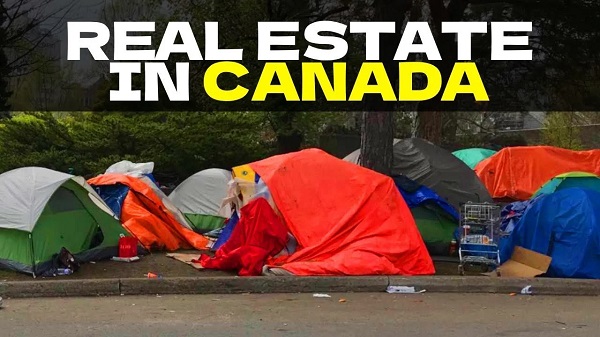
Imagine there’s a motorist going 110 K on a dark highway. The posted signs say Slow. Then Construction. Then Road Closed. But the driver keeps his pedal to the metal. “Those rules are for other people, not us.” The car goes off the road like Thelma and Louise.
This metaphor sums up the Liberal government since Mark Carney took over. There are warning signs all over. But he and the Justin Trudeau cabinet he inherited say the rules aren’t for us— even as their wheels leave the ground. They’re too busy announcing expensive housing plans and construction projects that won’t be built for four years, if at all.

What are the road signs? On the macro level, the government is printing money furiously to buy off the inevitable collapse even as it begs the central bank to lower interest rates. On the micro, a Toronto man who purchased a condo at the peak of the Toronto market for $880 K in 2022 has had to walk away from the five-year mortgage because the debt is worth more than the property. Which sells in a bankruptcy auction for $550 K.
In 2027, all such mortgages from that year will be coming due. What do you think will happen? This doesn’t include people who walk away before occupying. In Toronto, there is now roughly a 30 percent failure rate for condo closings, meaning many buyers are simply walking away from their pre-construction deposits. Even as tens of thousands of units are brought on stream.
The city of Toronto has $458 M in unpaid taxes on its books from 2024. (How will they paint rainbow crosswalks if this continues?) This shortfall is being experienced across the country. St. Catharines, Ont, had a 34 percent shortfall of taxed paid. Brampton has $150 M of unpaid taxes on its 2024 books. Montreal, Vancouver, Calgary and Edmonton face similar shortfalls. Meanwhile unemployment in these areas is reaching the 10 percent mark.

But the public seems unconcerned. They continue to elect radical city councils that address the shortfalls by jacking up their taxes even more— while services are cut back or non-existent. In 2024 municipalities from Ontario to British Columbia announced proposed property tax increases of between 2 and 15 percent.
These economic road signs emerge from a Liberal party that used low interest rates to create Trudeau’s faux real estate boom economy in urban zones. In 2021 it deceived the purchased medias with a $71 B “boldest housing plan ever”. The housing market collapsed immediately after this stunt. No wonder Donald Trump snorts at Canada as a viable entity.
This week’s detour from reality is a $13 B plan for new modular housing (@$3.25 M per shack). To season the Real Estate Turkey the government imported 3.4 million people in four years to clog the market for homes. Asked about the failure of their venture into real estate (at the expense of Canada’s traditional products like energy, canola and soft goods) the government points to the booming TSX stock market as approval for their plans.

The polls seem to indicate that the Elbows Up crowd, who don’t recognize the water lapping at their front door, are still enthusiastic for Carney’s ongoing feud with Trump, Canada’s largest trading partner. Their media sources, protected by government grants that censor contrary news, instead distract them with tales of far-right vigilantes, wine boycotts and climate catastrophe.
The revolution in communications that has emerged in the U.S. has so far not drifted north of the border. In the U.S. old-line broadcasters are still giving out Emmys to now-cancelled Steven Colbert, who has lost much of his audience, millions in advertising and the patience of ownership. They staged an awards ceremony that frequently mentioned Hamas and Palestine but not a word about a major media presence, Charlie Kirk, being murdered before live cameras.
No wonder they’re so shocked about the FCC cancelling Jimmy Kimmel for refusing to apologize for saying MAGA was behind the Kirk murder. The emergence of new outlets that reflect the complete spectrum has put the U.S. Media Party into fight-or-flight. For instance, startups like TBPN, a bare-bones daily talk show that riffs on Silicon Valley, has become a huge off-the-grid star outlet. It now commands appearances from Mark Zuckerberg. While the mainstream defends Kimmel.
The power of this emerging social media was shown in the pushback from the Kirk murder in which the unhinged comments of the trans and far-left communities were quickly exposed, with many in the teaching, public service and government professions (much to their surprise) summarily fired for their callous rants. Their shock reflects a portion of society that thought itself protected in their Bluesky bubble of affirmation.

In Canada the Kirk vitriol was no less nasty from outlets that see themselves as protected. @Cultmtl “Charlie Kirk died as he lived: propagating hateful myths about marginalized groups in our society. He was a profiteer and architect of America’s increasingly violent culture war. You reap what you sow.” (This from an outlet funded by the Canadian government.) CultMtl had lots of company in the self-protection circle.
“Discord, the communications platform now under scrutiny as U.S. investigators examine chat room messages involving the alleged assassin of conservative activist Charlie Kirk, is also being used by left-wing Antifa-aligned networks in Canada to organize and share dossiers on political targets”, Toronto independent journalist Caryma Sa’d.
So it was mostly American social media that outed odious Canadian comments online, forcing employers to take action against loons they’ve harboured up till now. The reaction to this culling was predictable in the mainstream media. “TorontoStar After Charlie Kirk’s death, workers learn the limits of free speech in and out of their jobs” https://trib.al/h1wAmek The hysteria over Kimmel dwarfed even that.
But at least only half of America is in the BlueSky bubble where liberal Jew Hannah Einbinder mocked Israel which saves her tribe from extinction. Canada’s bubble is almost total, thanks to federal communications policies that smother free expression in the public sphere. So far it has resisted criticism by blunt-force object. Its aged loquitors speak with authority while ignoring the under 50s hate them for what they’re doing to the dream of home ownership.
Whether through fear or negligence, Canada’s Liberals are determined to shape their housing message for the bubble, distract from reality and pray they make it to the next election. Before the car goes over the cliff marked Do Not Enter.
Bruce Dowbiggin @dowbboy is the editor of Not The Public Broadcaster A two-time winner of the Gemini Award as Canada’s top television sports broadcaster, his new book Deal With It: The Trades That Stunned The NHL And Changed Hockey is now available on Amazon. Inexact Science: The Six Most Compelling Draft Years In NHL History, his previous book with his son Evan, was voted the seventh-best professional hockey book of all time by bookauthority.org . His 2004 book Money Players was voted sixth best on the same list, and is available via brucedowbigginbooks.ca.
-
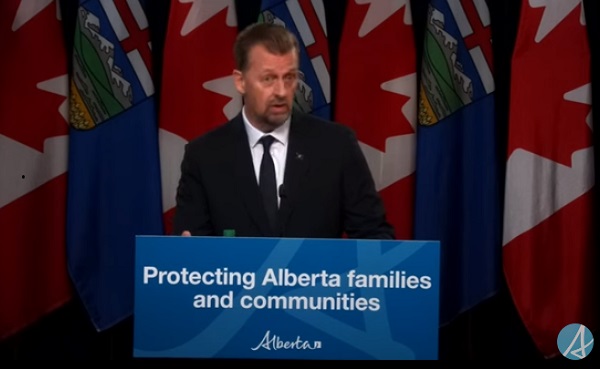
 Alberta2 days ago
Alberta2 days agoAlberta’s Justice and Public Safety Ministers shoot down Ottawa’s firearm buyback failure
-

 espionage1 day ago
espionage1 day ago24 years later: Tucker Carlson releases interview with retired CIA agent claiming the CIA KNEW 9/11 was coming
-

 Also Interesting2 days ago
Also Interesting2 days agoBuy USDT: Opportunities and Risks in Stablecoin Investments In 2026
-

 National2 days ago
National2 days agoStatscan: Canada is getting Older, Poorer, and Smaller
-

 Business2 days ago
Business2 days agoGoogle Admits Biden White House Pressured Content Removal, Promises to Restore Banned YouTube Accounts
-

 Business1 day ago
Business1 day agoWEF has a plan to overhaul the global financial system by monetizing nature
-

 espionage2 days ago
espionage2 days agoCanada Under Siege: Sparking a National Dialogue on Security and Corruption
-

 Autism2 days ago
Autism2 days agoSecretary Kennedy’s Key Remark at Autism Press Conference


